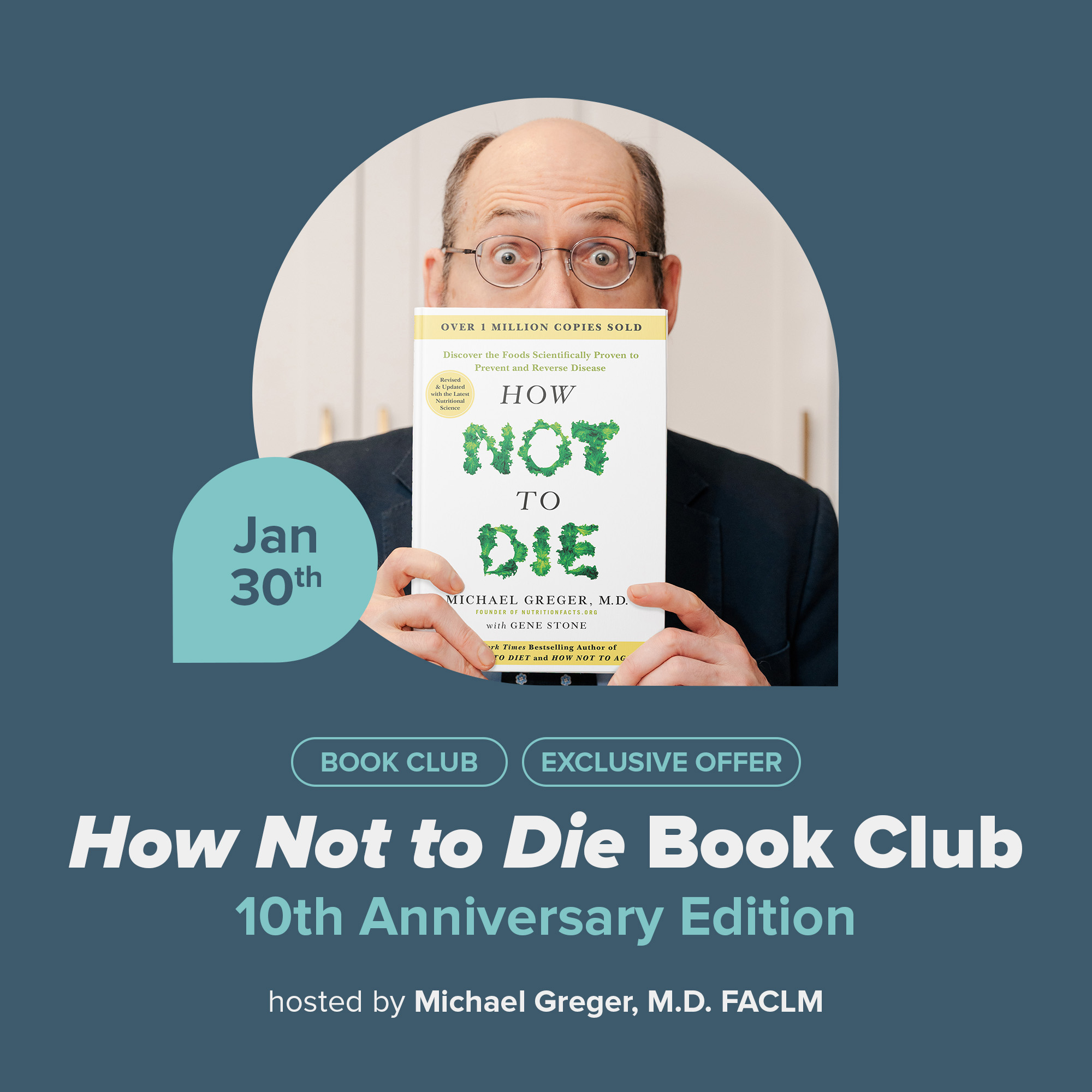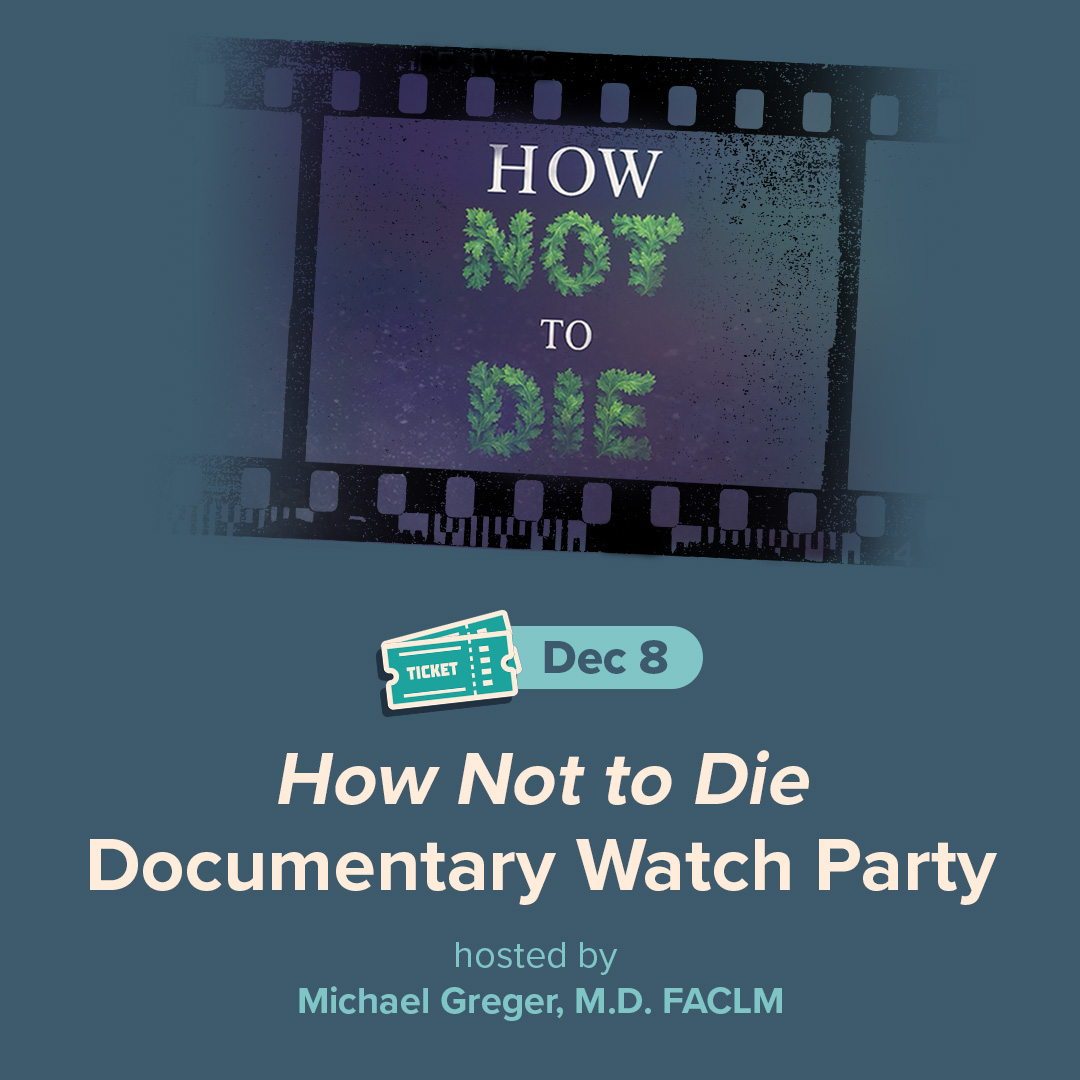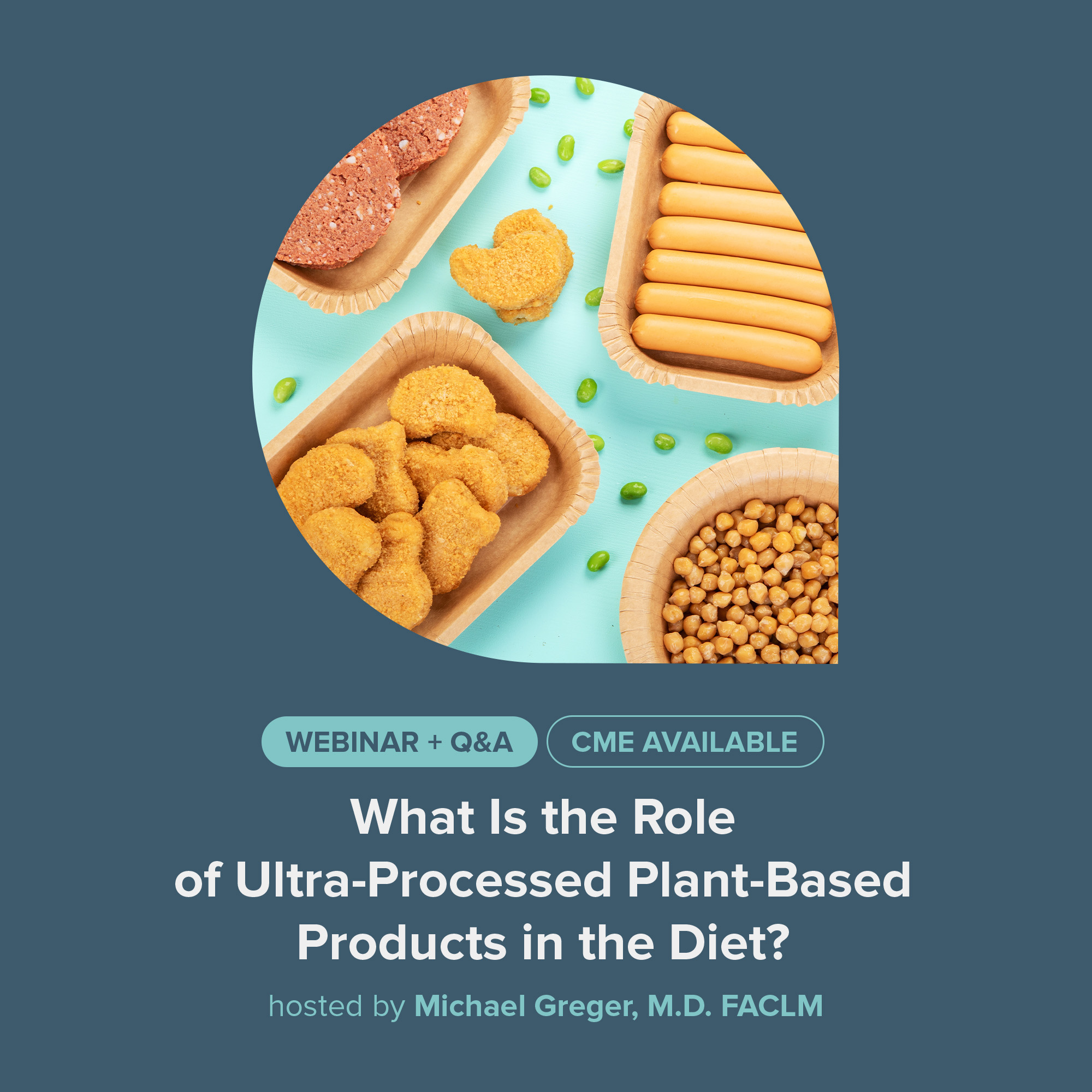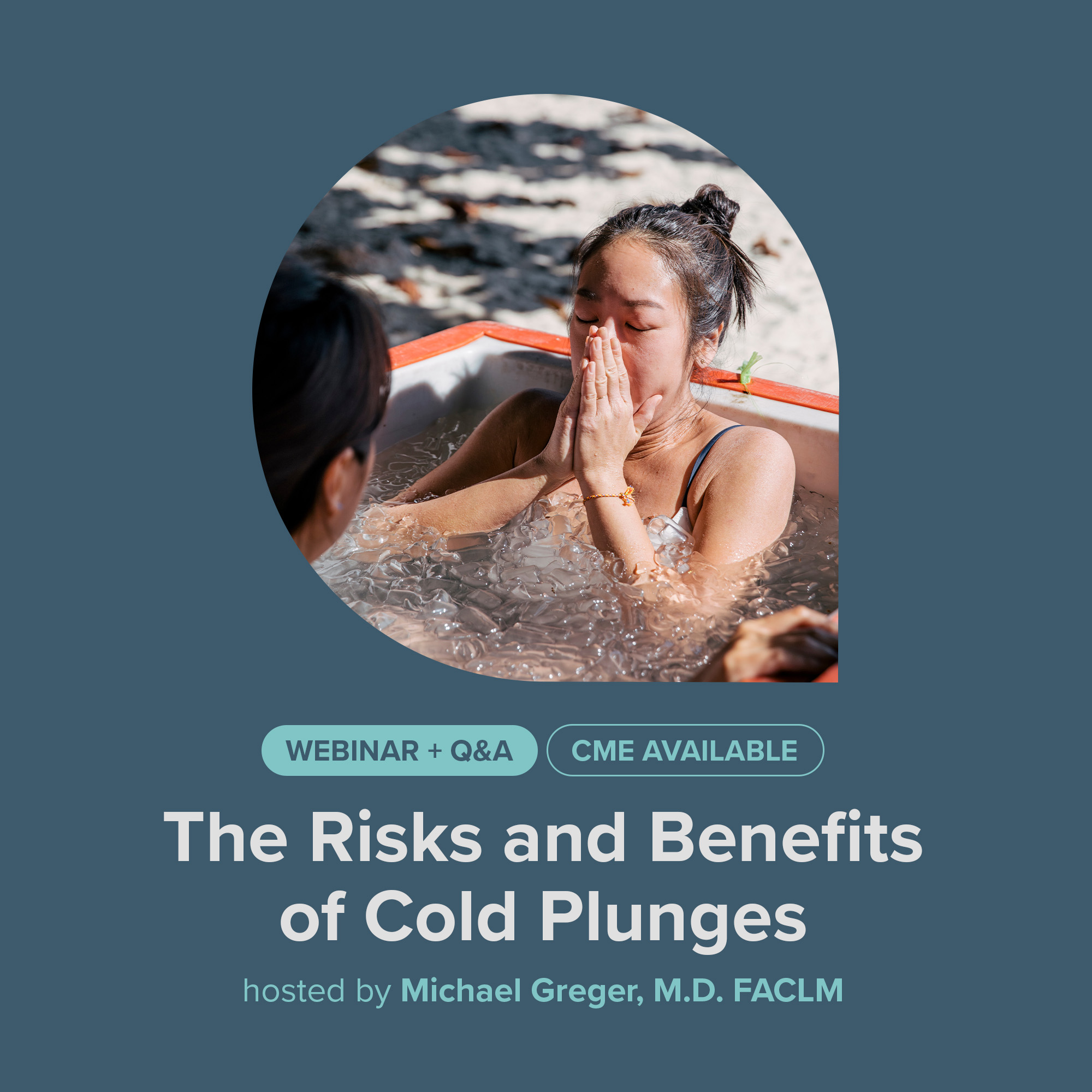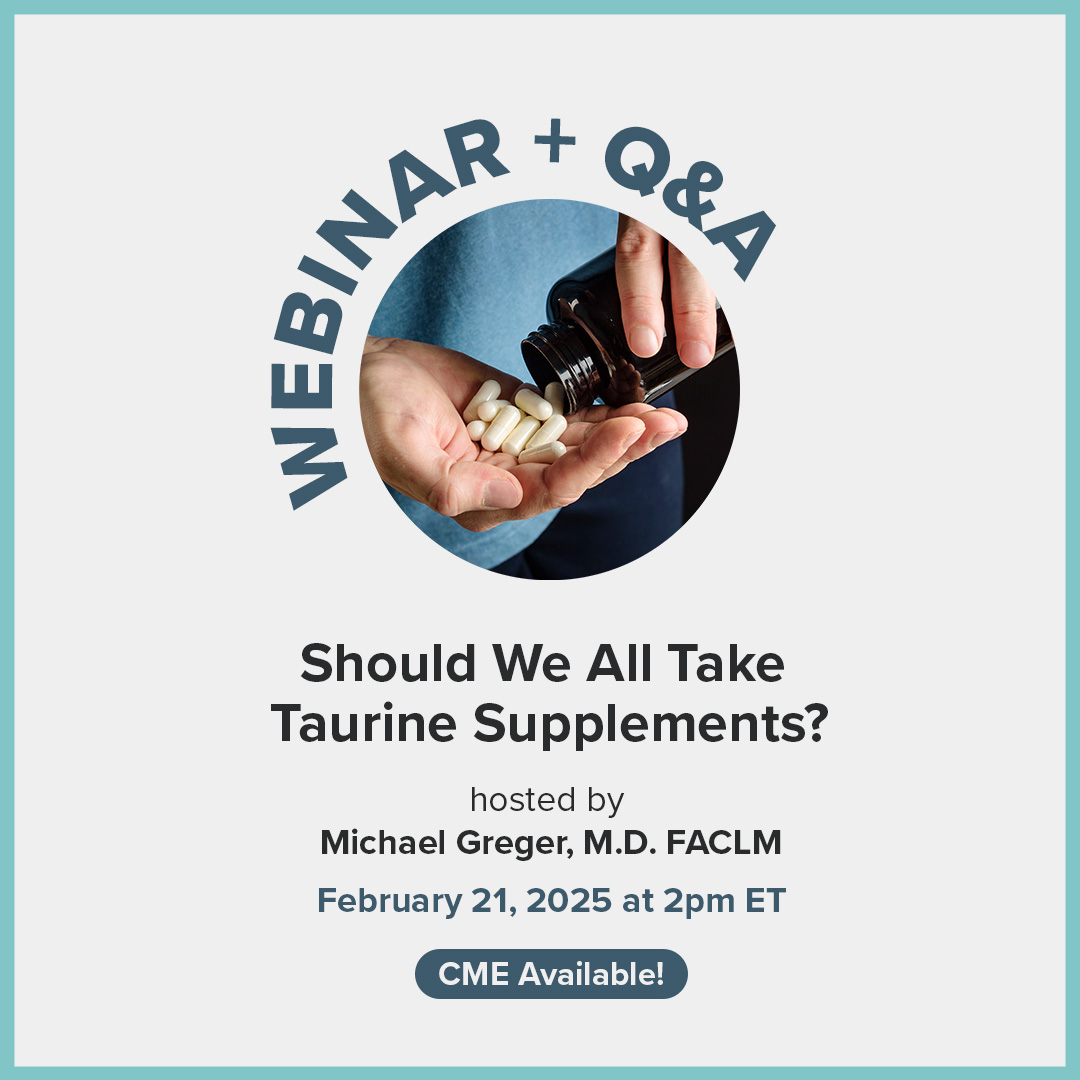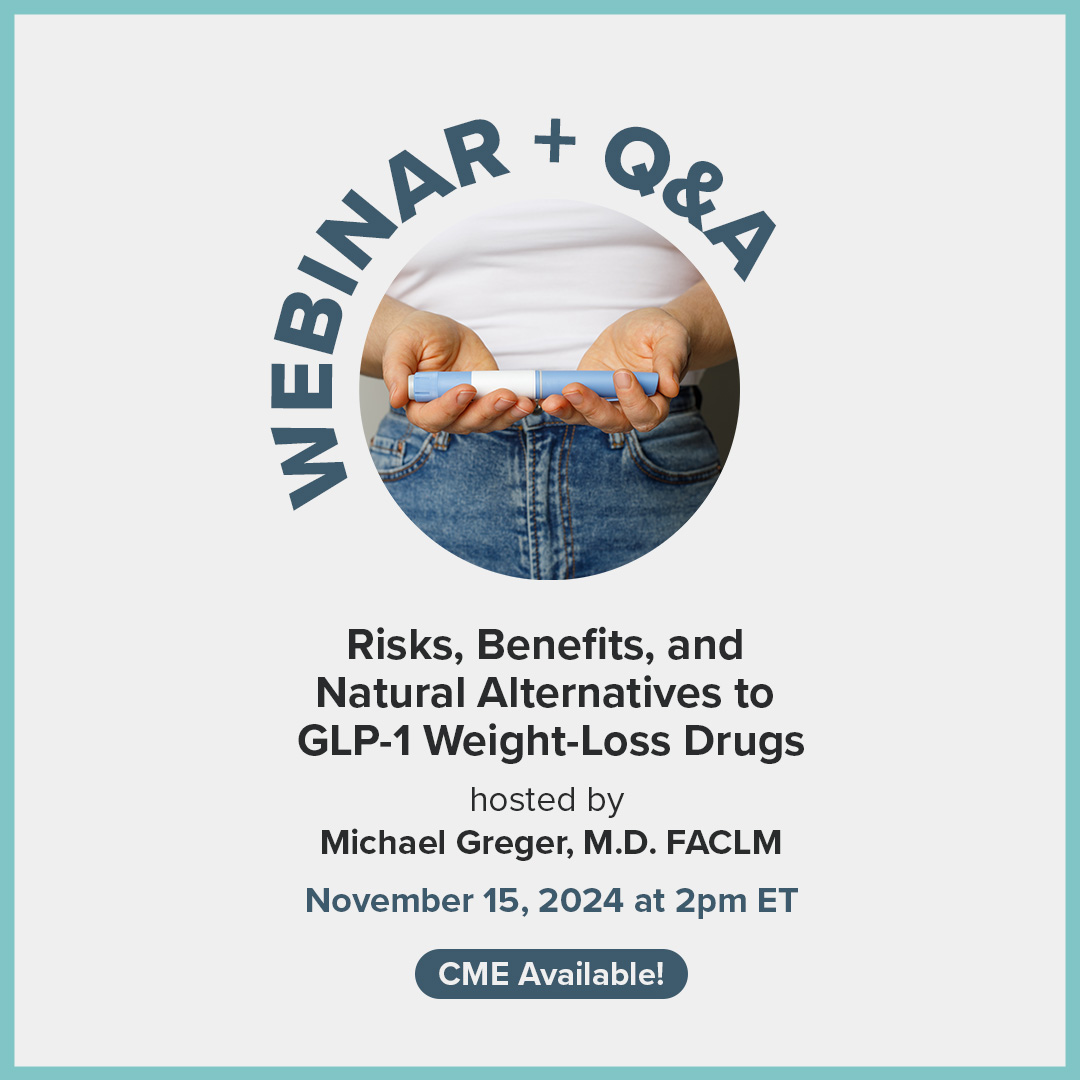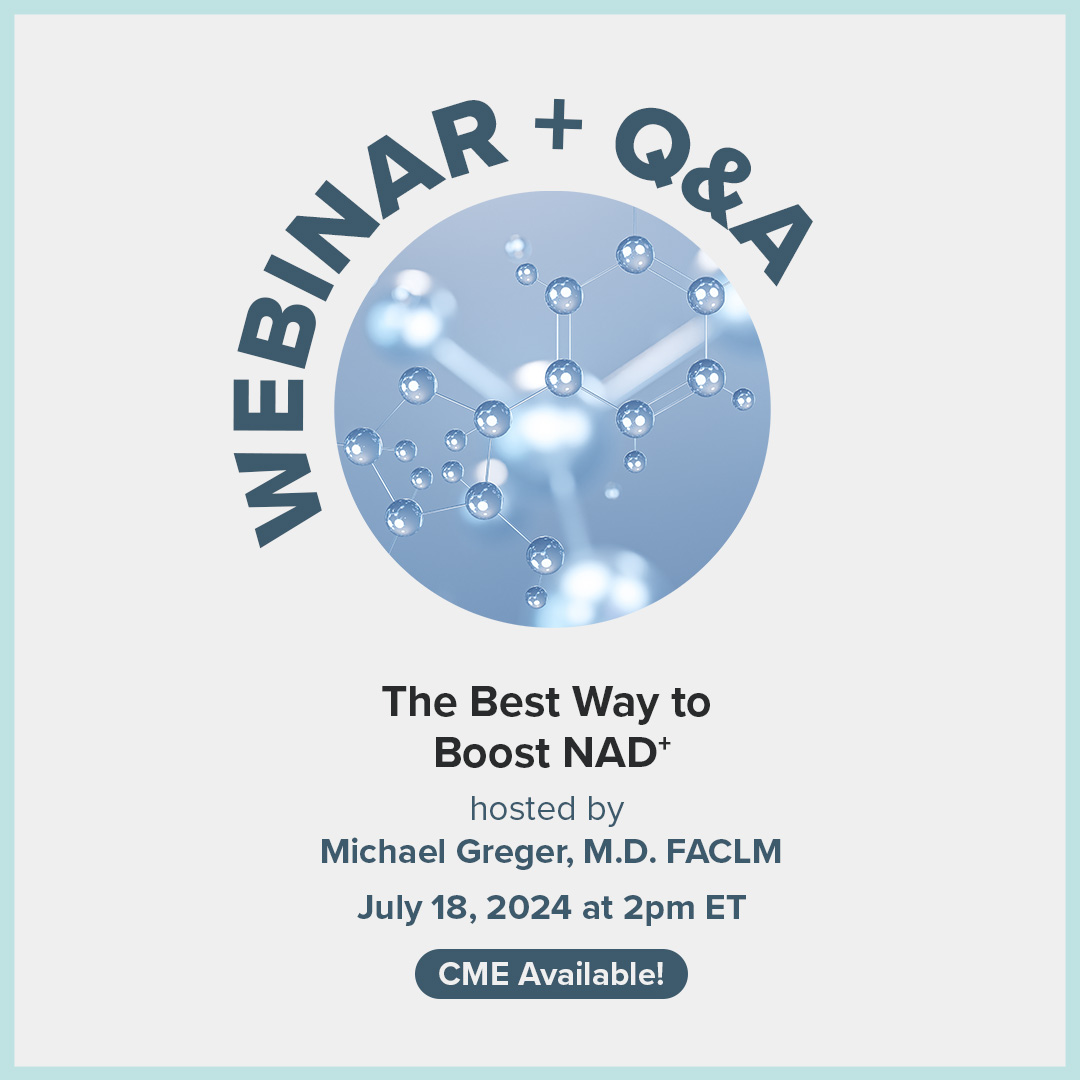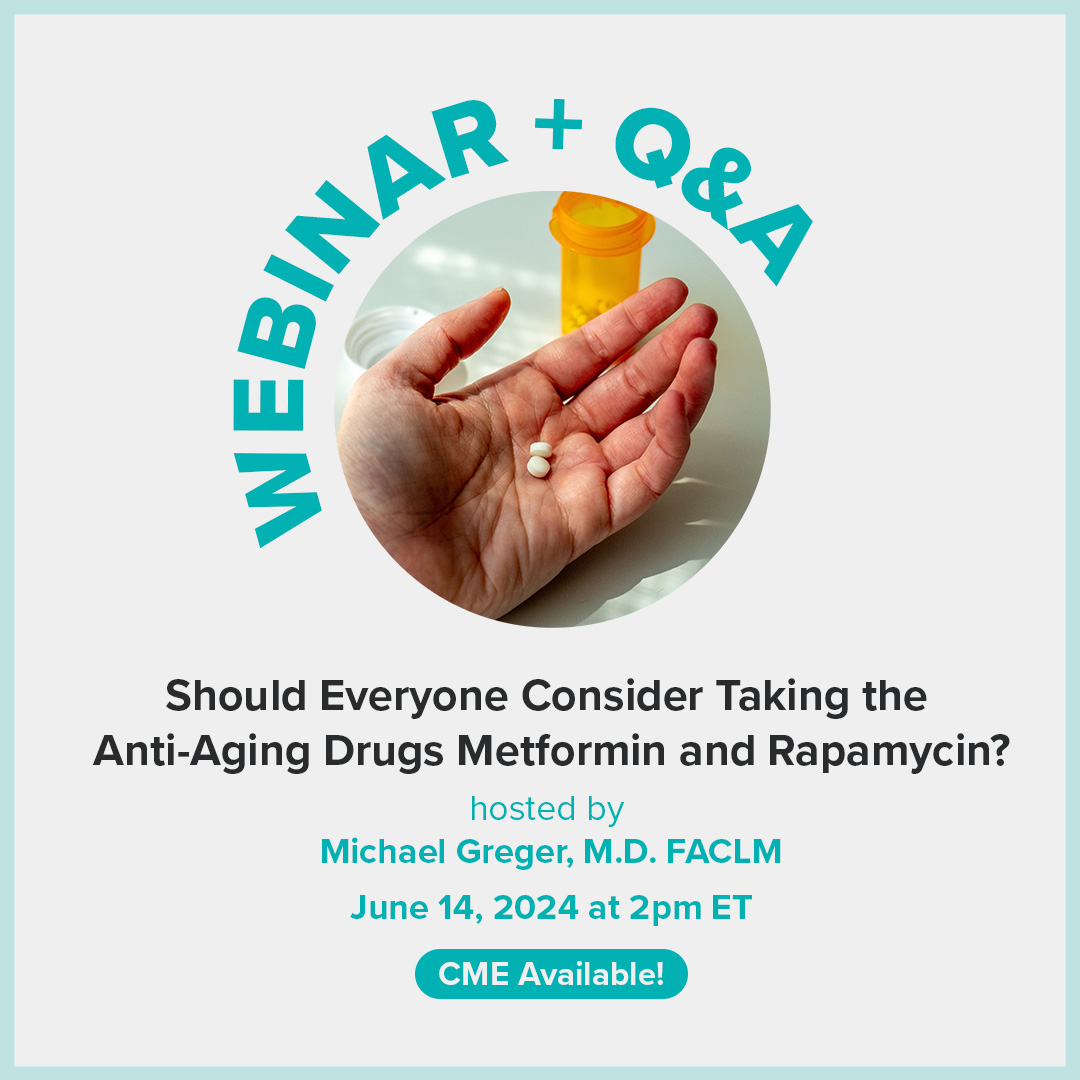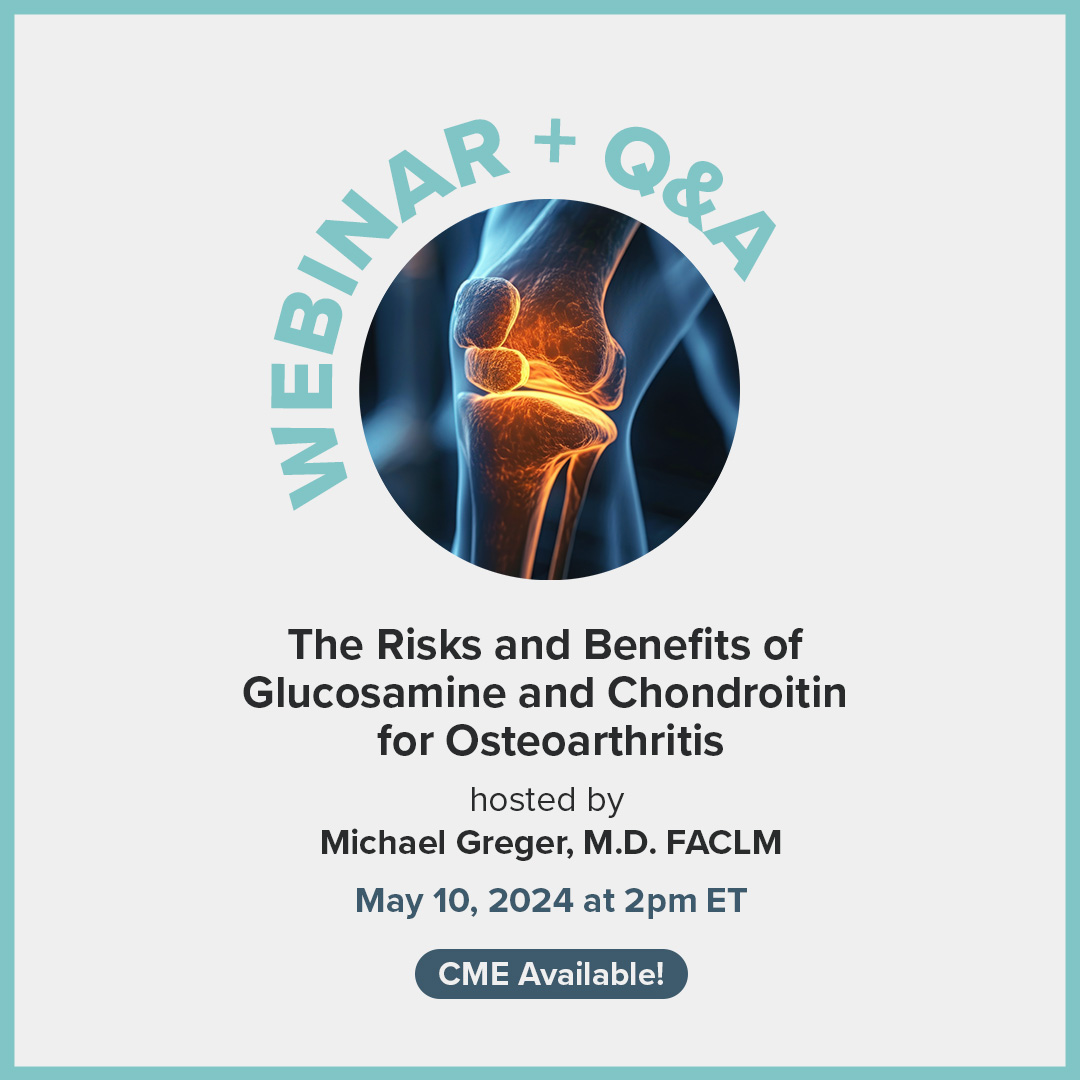The new class of weight-loss medications are hailed as game-changing wonder drugs, but just how safe and effective are they? Why do most people stop taking them within months of starting? Why does weight loss plateau, and what happens when you quit? How can you control the short-term side effects, such as gastrointestinal symptoms and muscle loss (“Ozempic face”), and what are the long-term risks of taking these drugs?
The adverse health effects of obesity itself are so dire that, like bariatric surgery, one could argue that these weight-loss drugs should be considered as a last resort, but there are diet and lifestyle changes that can naturally restore our GLP-1 satiety circuits. In this in-depth, three-hour live webinar event, Dr. Greger exposes what’s really happening in our bodies when we take drugs like Ozempic, explains why we should be concerned about supplements purported to act as “nature’s Ozempic,” and discusses the foods, beverages, spices, and lifestyle habits that can actually boost GLP-1 activity, cut cravings, and accelerate the loss of body fat.
